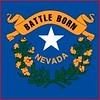Banks in the 19th century were owned by real capitalists and the equity capital of banks was about 60–80% of their balance sheets: bankers were lending or investing their own money, so they were responsible and did not accept excessive risks.
The 19th century also had what were called "wildcat" banks. These were often owned and operated by thieves and counterfeiters. They were located throughout the country, but were especially prevalent in the territories. They were characterized by the fact that they only had enough money to convince the locals that they had more. Today, we call that "a low reserve ratio".
Following a succession of bank panics, the central banking system was created in 1913 and called the Federal Reserve. And here is where it gets really interesting. The reserve ratio was set at 3%-12% depending on the size of the bank. What only a year before had been considered dishonest at best and criminal at worst, was now institutionalized as the norm. Shortly after this, the honest banker disappeared. The gold standard became a political football, before being phased out. With no cultural pressures, and no system of measurement, the wildcats could run free.
The required reserve ratio at the Fed is currently 10% on transaction deposits (checking and savings), and zero on everything else. Homes, cars, credit cards, entire businesses, have all been financed with nothing. And what of those savings accounts? Of course, there are plenty of exemptions and waiver rules included for favored political donors. Mr. Kirby continues:
...an accurate and logical accounting of where we are would amount to a confessional by the powers-that-be, punishable by law.
I don't see that anything is punishable by law. Inaccuracy and illogical accounting is the law. The lack of trust we see today is only the widespread realization that the money center banks are insolvent. They have been for a very long time. The banks are broke and everybody knows it. If the banks had been built on real wealth, regaining trust would be quick and easy. As it stands, what's to trust?




No comments:
Post a Comment